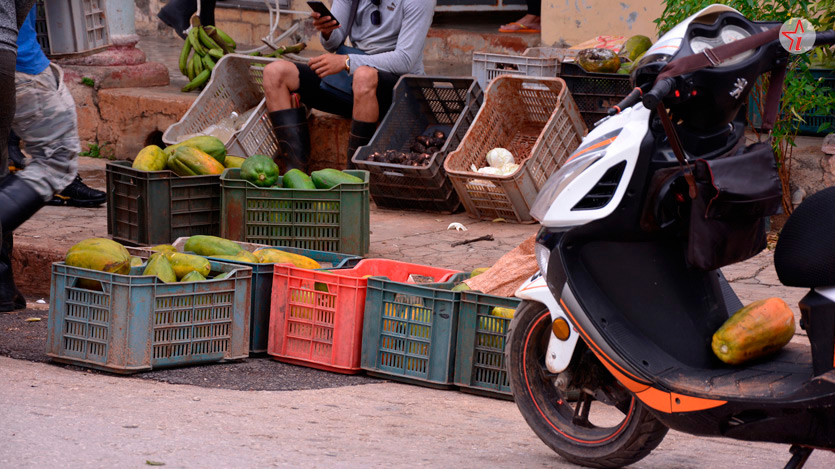

Serving a sentence for illegality, just as the commitment of the Provincial Confrontation Group (GPE by its Spanish initials) in combating the constant contraventions of capped prices of food and industrial products in Ciego de Ávila are not new. Although in front of a cart or platform you do not appreciate it, the territory maintains its provisions of August 2019 in force.
The claim of people grows from the official warning to the sanction since it is proven that knowing the existence of the illegal environment, warning offenders and trying to dissuade them from their actions generate impunity and recidivism.
In the morning of this Thursday, the GPE made 41 visits to state entities and self-employed workers, to monitor compliance with prices and hygienic-sanitary measures, in which they were applied eight fines for a value of $7,275.00.
Evaristo González Camacho, head of the Comprehensive Provincial Supervision Directorate (DIS by its Spanish initials), reported that it was also carried out four confiscations, 241 pounds of cassava, 86 of pumpkin, 100 packages of coffee and 39 boxes of tomato paste.
“At the Cooperativa de Creditos y Servicios (CCS) José Antonio Echeverría sale booth, located at Máximo Gómez street, in Ciego de Ávila municipality, it was found that they offered the ham and chorizo at $70.00, without appearing in the unit's price list.
"In addition, a fine of $100.00 was applied to the clerk for not using the face mask well at the time of the inspection."
In the public road, despite the corrections, there are still some workers that insist on transgressing the imposed charges. "Artillery" carts cross both the main and peripheral sites of the city.
Crackers sale
A package of crackers costs $60.00!, even when the person has neither documents nor factory.
A citizen has to pay a fine of $2,000.00 for selling papaya fruit without the required permits and violating the recognized costs for the product.
The tour continued and, in presence of a group of DIS inspectors, another seller doubled the value of the pot of ají cachucha and cassava, infractions for which he will pay a fine of $ 2,000.00.
Recently, in front of this journalist, someone reproduced the response of a seller to an old woman: "If it is not good for you, eat your money." The grandmother, commented the person who observed, took her bag from the bottom of the purse, put aside the identity card, the checkbook, the prescriptions to buy and, inside the well-pressed medicine card, the $100.00 bill.
This form of reply, next to other signals, is usual among countless re-sellers. For this reason, it is necessary to understand that the complaint does not end with only taking $1,000.00 from that self-employed worker who sells the chorizo sandwich at $7.00 pesos, the ham sandwich at $10.00 and the ham with chorizo sandwich at $15.00.
The amounts of illegalities, which in several cases are whispered in secret, are raised on the basis of a gradual demand - for almost everything -, the scarcity of offers, passing through the confinement disorders, where the opportunists have not been punished with the required force.
As attempts to restrain the tendency to defraud the customer grow, private sellers justify the increase in the payment for their merchandise with the fact that their suppliers have made the offers more expensive and the State does not assure them their products; although they must acquire their goods in the retail network (sale booths, small stores, organic permaculture farming), another undeniable reality.
Finally, the performance of a cart driver is inspected, to cite one example, and customers are bothered to interrupt or as passive spectators qualify as "poor people" those who, minutes before, denounced for their dissimilar cheatings.
Fighting against illegalities in Ciego de Ávila is a strong battle, which implies popular participation, in order to put an end to that network that supports resale and brings with it the monopolization and diversion of products from Acopio.




